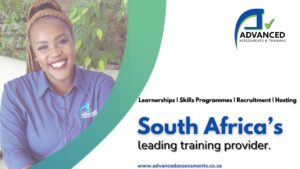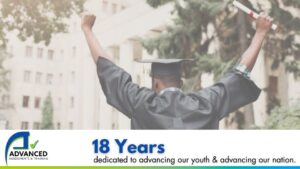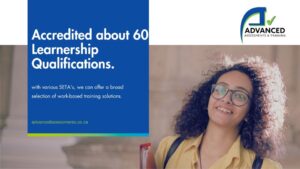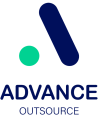Shape
the future.
the future.
Driven to inspire
a more confident
skilled & motivated
South African youth.
a more confident
skilled & motivated
South African youth.
Inspiring an empowered,
confident and motivated workforce.
confident and motivated workforce.
ACCREDITATIONS



Learner
Looking to
ADVANCE YOURSELF ?
Employer
Looking to
ADVANCE NATION ?
OUR IMPACT SO FAR
Current Learners
0
Qualified Learners
0
ABOUT
Advanced Assessments & Training is in the business of advancing the matriculants and youth of South Africa through high quality education. We are driven to inspire a more confident workforce through our programs and partner with companies who want to raise the skills standard of the next generation of South Africa.
LEARNERSHIPS
Business
Administration
This qualification is for anyone who wishes to be in the Administration function of a business or organisation.
Generic
Management
This is designed to develop management competencies required in any occupation, further developing key concepts, principles & practices.
Project
Management
This qualification’s purpose is to address project and general threshold competencies required to manage simple to moderately complex projects.
Contact Centre
Manager
This is designed to meet the needs of learners who want to progress in Contact Centre Manager, focusing on skills, knowledge, values & attitudes.
New Venture
Creation
This is for those who wish to start, operate, manage and grow a new small to medium business venture, equipping you with the skills you require.
Banking
This qualification presents a combination of learning outcomes in business, commerce & management.
Insurance
The purpose of the insurance qualifications is to build competencies, knowledge and skills required in the industry.
Supply Chain
Management
This qualification is aimed at fostering supply chain integration to the advantage of stakeholders.
Information
Technology
This is aimed at equipping learners with the necessary knowledge, skills and competencies to provide entry into the IT fields.
Office
Administrator
This occupational qualification provides the opportunity to acquire a range of administrative skills to coordinate the activities of an office.
Bookkeeper
This qualification enables learners to apply for entry-level positions in any finance-related function across sectors and industries.
Contact Centre
Manager
This qualification prepares the learner to operate as a Call Centre Manager, giving them the skills to manage and optimise quality operations.
Interested in finding out more about
our learnerships and skills programmes?
NEWSLETTER
Join our community of game changers, move makers and visionaries.





